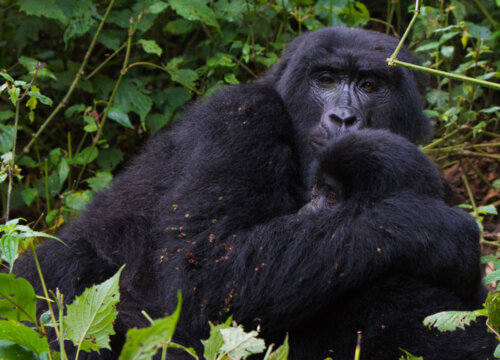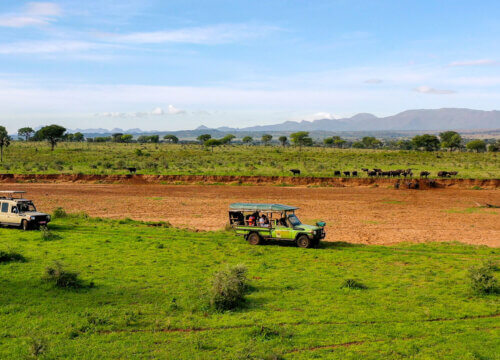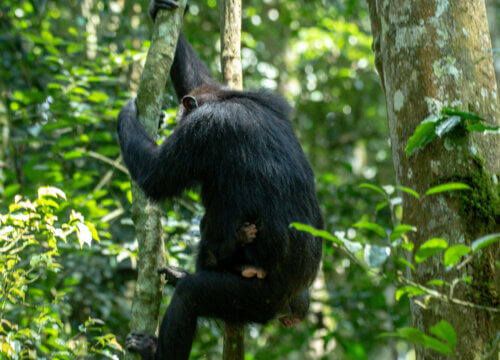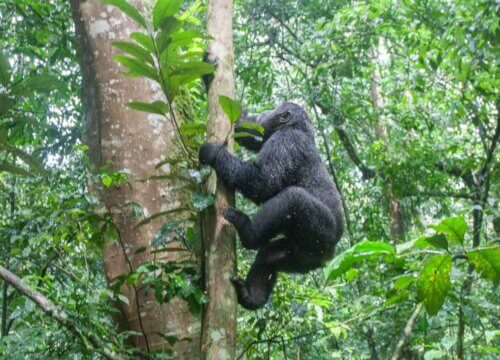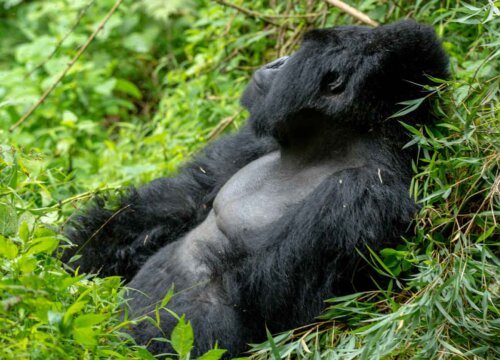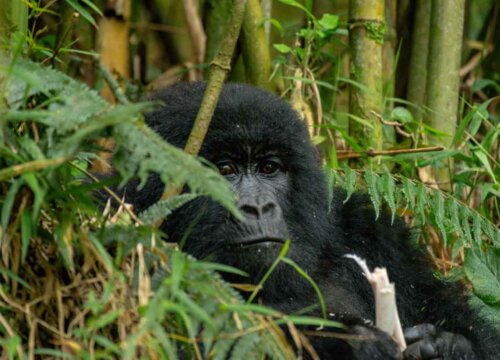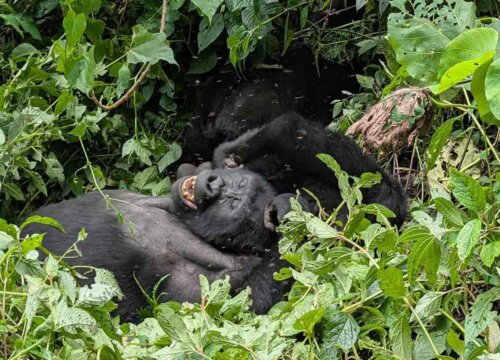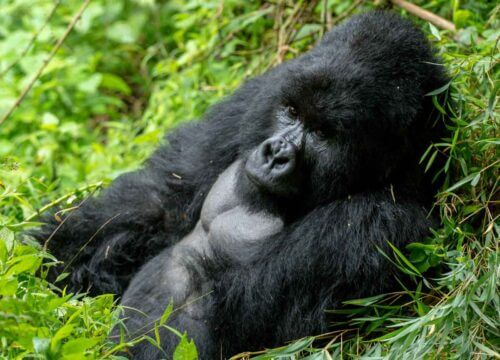Reasons why visit Uganda | Why Uganda Safaris
Reasons why visit Uganda | Why Uganda Safaris
There are many reasons why visit Uganda which is usually referred to as the Pearl of Africa is a beautiful destination that offers an unparalleled mix of natural beauty, diverse wildlife and rich culture. For passionate adventurers, nature lovers, or tourists who want to immerse themselves in unique traditions, Uganda has something for everyone. Here are compelling reasons why you should add this East African gem to your travel bucket list.
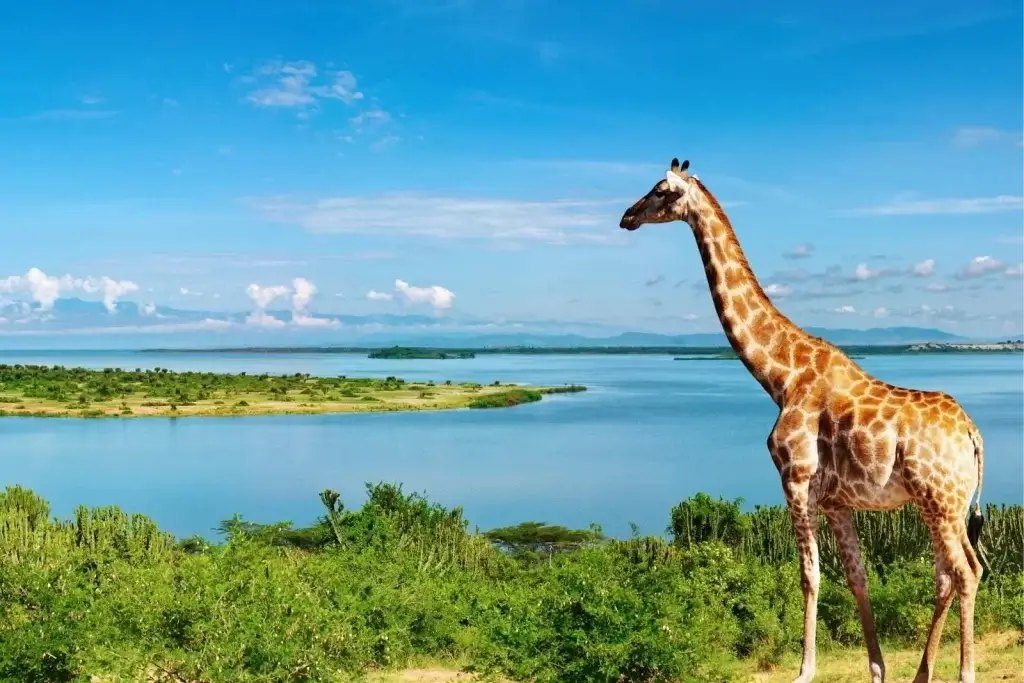
Reasons why visit Uganda | Why Uganda Safaris
Gorilla trekking in Bwindi Impenetrable Forest
Uganda is home to more than half of the remaining mountain gorillas in the whole world, making it one of the best places on Earth for gorilla trekking. Bwindi Impenetrable Forest, a UNESCO world heritage site offers an extraordinary opportunity to closer with these gentle giants in their natural home. The experience is both humbling and exciting, leaving visitors with memories they will cherish forever.
Spectacular wildlife safaris | Reasons why visit Uganda
Uganda has a remarkable array of wildlife, rivaling its more famous neighbors like Kenya and Tanzania. From the tree-climbing lions in Queen Elizabeth National Park to herds of elephants in Murchison Falls National Park, Uganda offers incredible safari experiences. Do not forget to search for the elusive shoebill stork while exploring the wetlands of Mabamba Swamp.
The source of the Nile | Reasons why visit Uganda
The mighty Nile River, the longest river in the world, begins its journey in Uganda. Visiting Jinja allows you to see the Source of the Nile firsthand. While there, you can enjoy thrilling activities like white water rafting, kayaking and bungee jumping, or simply take a serene boat ride along this iconic river.
Breathtaking landscapes
Uganda’s landscapes are diverse and beautiful. From the snow-capped Rwenzori Mountains to the sprawling savannahs, lush rainforests and sparkling crater lakes, every corner of Uganda is eye catching. Lake Victoria, Africa’s largest freshwater lake, is another must see destination for its beauty and peacefulness.
Rich culture and warm hospitality
Uganda is home to more than 50 ethnic groups, each with its own unique traditions, music, dance, and dishes. The Baganda, Banyankole, and Karamojong are just a few of the communities that contribute to Uganda’s rich culture. Visitors are often struck by the warmth and friendliness of Ugandans who are eager to share their stories and traditions with travelers.
Chimpanzee tracking adventures
In addition to gorillas, Uganda is also a prime destination for chimpanzee tracking. Kibale National Park is one of the best places to observe these intelligent primates in their natural environment. Watching chimpanzees swing through the treetops and interact with each other is an unforgettable experience for any wildlife enthusiast.
Untouched national parks
Uganda has ten national parks, each offering unique experiences and ecosystems. Whether it is the volcanic landscapes of Mount Elgon National Park, the dramatic waterfalls of Murchison Falls National Park or the birdwatcher’s paradise at Semuliki National Park, there is no shortage of natural wonders to explore.
Perfect weather throughout the year
Thanks to its location along the equator, Uganda enjoys a pleasant tropical climate throughout the year. With temperatures ranging between 20-30°C, it is an ideal destination for travelers seeking comfortable weather during their adventures.
Delicious local cuisine
Ugandan food is flavorful with dishes that reflect its agricultural abundance. Staples like matoke, posho and groundnut sauce are complemented by fresh fish from Lake Victoria and grilled meats. Be sure to try a Rolex which is a popular street food made with an omelet rolled up in a chapati.
Remote adventures
Unlike some other African destinations that can feel overcrowded with tourists, Uganda offers a more private and authentic travel experience. Whether you are hiking through remote villages or exploring hidden waterfalls, you will often feel like you have the country’s natural wonders all to yourself.
What is the best time to visit Uganda?
Uganda has a tropical climate with two main seasons that is the dry season and the rainy season. The dry seasons from December to February and June to August are generally considered the best times to visit. During these months, the weather is warm and pleasant with less rainfall making it best weather for outdoor activities like gorilla trekking, safaris and hiking. The dry season also provides excellent opportunities for wildlife viewing as animals gather around water sources which makes them easier to spot.
If gorilla trekking in Bwindi Impenetrable National Park or Mgahinga Gorilla National Park is on your bucket list, the dry season is particularly advantageous. The trails are less muddy and more accessible ensuring a smoother trekking experience. Additionally, this is a great time for exploring Uganda’s stunning national parks such as Queen Elizabeth National Park and Murchison Falls National Park.
Alternatively, the rainy seasons from March to May and September to November also have their charm. While the rain can make travel and trekking more challenging, this period transforms Uganda into a lush and green paradise. Photographers will love the vibrant landscapes and birdwatchers will be excited by the abundance of migratory birds that arrive during these months. Plus, accommodations and tours are usually more affordable during the rainy season, making it a budget-friendly option for travelers.
Overall, the best time to visit Uganda depends on your preferences and priorities. Whether you are chasing adventure or simply interested in the natural beauty, Uganda is a destination that promises unforgettable experiences throughout the year. To plan your trip to Uganda, contact Giant Holiday Safaris.
What are airport procedures in Uganda
Do you want to travel to or from Uganda? Understanding the airport procedures can make your journey smoother and stress-free. Whether you are landing at Entebbe International Airport, Uganda’s main gateway or departing, here is a quick guide to help.
Arrival procedures
Upon landing, proceed to immigration. Ensure you have your passport, visa if required and any supporting documents ready. Uganda offers an e-Visa system, so applying online beforehand can save time. After immigration, collect your luggage from the baggage claim area and head to customs. If you have nothing to declare, use the green channel.
Departure procedures
For departures, arrive at the airport at least three hours before your flight. Start by checking in at your airline’s counter and dropping off your luggage. Afterward, go through security screening and immigration. Ensure your travel documents including a valid passport and ticket are in order.
Is Uganda a safe country?
Generally, Uganda is a safe destination for tourists. The major cities like Kampala and Entebbe are relatively stable and popular tourist areas such as Bwindi Impenetrable Forest, Queen Elizabeth National Park and Murchison Falls are well-secured and frequently visited by international travelers. The Ugandan people are known for their hospitality, and many visitors leave with fond memories of their interactions. That said, like any country, Uganda has its challenges. Minor crimes such as pickpocketing can occur in busy areas, so it is wise to stay vigilant. Some regions particularly near the borders with South Sudan and the Democratic Republic of Congo can be less secure, so it is best to avoid those areas unless necessary. With proper planning, awareness and respect for local customs, Uganda can be a safe and rewarding destination. Whether you are trekking to see mountain gorillas or exploring the vibrant culture, Uganda offers a memorable experience.
Facts about Uganda
Known as the Pearl of Africa, Uganda is a vibrant and diverse country in East Africa. Here are ten captivating facts about this amazing nation.
- Uganda is home to half of the mountain gorillas in the world found in Bwindi Impenetrable National Park.
- Uganda also boasts the Big Five and over 1,000 bird species.
- The legendary River Nile begins its journey in Jinja, Uganda, offering exciting activities like white-water rafting.
- Uganda shares Lake Victoria, the largest lake in Africa and a vital resource for fishing and tourism.
- Ugandans are known for their warmth and hospitality, making visitors feel at home.
- Uganda is rich in traditions, languages and festivals with over 50 tribes.
- Kampala, the busy capital city of Uganda is a hub for culture, nightlife and history.
- Uganda is one of the largest consumers of bananas with matoke or steamed green bananas being a staple dish.
- Uganda enjoys a pleasant tropical climate throughout the year.
- From Rwenzori Mountains to Murchison Falls, Uganda’s landscapes are wonderful.
- Ugandan coffee is globally known especially its robusta variety.
Which language is spoken in Uganda?
Uganda is a vibrant and culturally rich country located in East Africa. The official language spoken in Uganda is English, a remnant of its colonial past under British rule. English is widely used in government, education and business making it an important medium for communication across the nation. However, Uganda is also home to many local languages reflecting its cultural richness. Luganda, a Bantu language, is one of the most commonly spoken native languages in the central region including the capital city, Kampala. Swahili is also widely spoken especially in trade and among the military as it connects Uganda to its East African neighbors. In total, Uganda has more than 40 languages spoken across its regions including Acholi, Runyankole, Lusoga, and many more. This linguistic diversity highlights the country’s multicultural identity and the harmonious coexistence of its many ethnic groups.
Explorer More Safaris
- 14-Days Uganda Safari Gorilla Chimpanzees and Wildlife
- 12 Days Gorillas and Chimpanzees Wildlife Safari
- 10 days best of uganda primates & wildlife safari
- 6 Days Gorillas and Chimpanzee Trekking Safari
- 3 Day Bwindi Gorilla Trekking Safari
- 4 Day Uganda Gorilla Trekking and Wildlife Safari
- 4 Days Gorilla Trekking and Adventure Safari
- 5 Days Uganda Gorillas and Chimpanzee Tracking Safari
- 4-Day Rwanda Gorilla Trekking and Golden Monkey Tracking Safari
- 5 Day Gorilla Habituation and Chimp Trekking
- 4-Day Uganda & Rwanda Gorilla Trekking Tour
- 3 Days Bwindi Gorilla Trekking Ugnada from Rwanda
- 10 Days Uganda Primates and Game Safari

